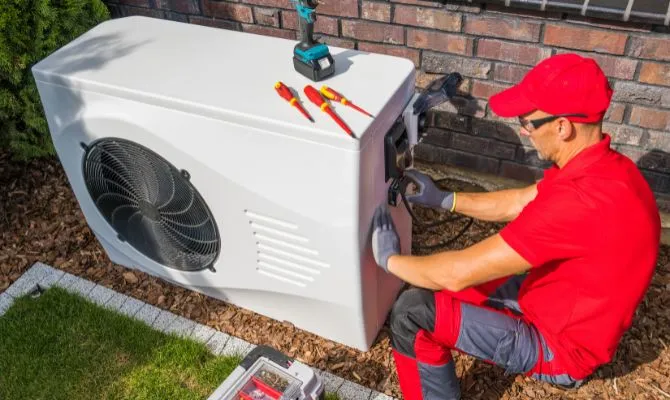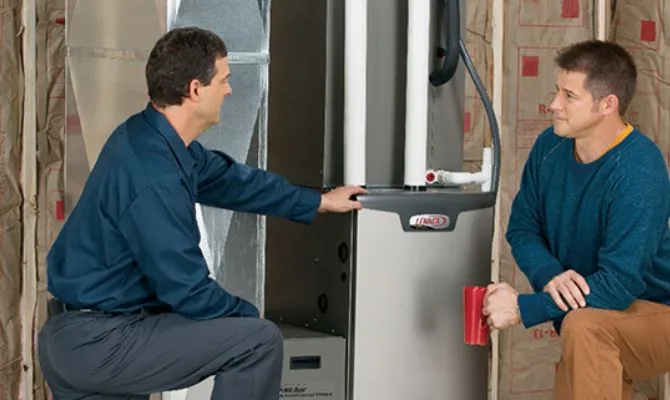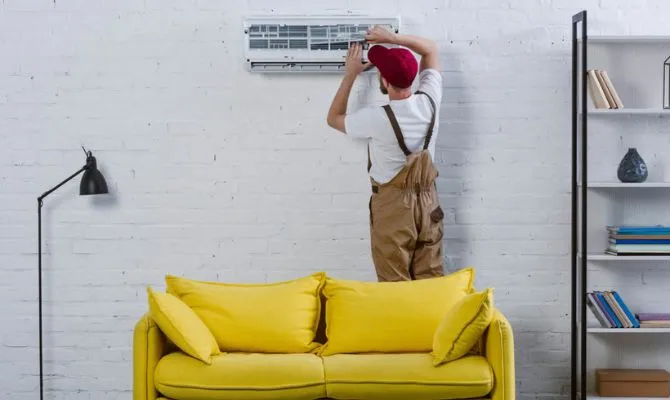Heating, Ventilation, and Air Conditioning, commonly known as HVAC, is a critical aspect of modern living, especially in places with extreme weather conditions. Whether it’s keeping us warm during chilly winters or ensuring our comfort on scorching summer days, HVAC systems play a pivotal role in maintaining the desired indoor environment.
In this comprehensive guide, we’ll delve into the world of HVAC, exploring its meaning, functions, types, and even the difference between HVAC and air conditioning. Plus, we’ll discuss the importance of professional HVAC contractors and the benefits of leaving HVAC repairs and maintenance to the experts.
HVAC Meaning – What Is HVAC?
HVAC stands for Heating, Ventilation, and Air Conditioning. It encompasses a range of systems and technologies designed to control the temperature, humidity, and air quality within a building. HVAC systems are crucial for maintaining a comfortable and healthy indoor environment, regardless of the weather conditions outside.
HVAC System: What Is It Exactly?
An HVAC system is a complex network of components that work together to provide heating, cooling, and ventilation to a building. It consists of various parts, including:
Heating Unit: This component is responsible for generating heat, typically using furnaces, boilers, or heat pumps.
Cooling Unit: Cooling is achieved through air conditioners or heat pumps, which remove heat from the indoor environment.
Ventilation System: Ventilation ensures the exchange of fresh outdoor air with indoor air, removing pollutants and regulating humidity levels.
Ductwork: Ducts are used to distribute heated or cooled air throughout the building.
Thermostat: A thermostat acts as the control center, allowing users to set and adjust temperature preferences.
How Does HVAC Work?
The operation of an HVAC system involves a series of processes:
Air Intake: The HVAC system draws in outdoor air through an intake vent.
Heating or Cooling: Depending on the desired temperature, the system will either heat or cool the air.
Air Distribution: The treated air is then distributed through ducts to different rooms within the building.
Ventilation: Simultaneously, a ventilation system ensures the circulation of fresh outdoor air while removing stale indoor air.
Temperature Control: The thermostat monitors the indoor temperature and communicates with the heating and cooling units to maintain the set temperature.
Humidity Control: Some advanced HVAC systems also include humidity control features to maintain optimal indoor humidity levels.
HVAC System Basics – Types of HVAC Systems
There are several types of HVAC systems, each with its advantages and applications:
Split System: This is the most common type, consisting of both indoor and outdoor units. It provides both heating and cooling.
Ductless Mini-Split System: Ideal for homes without ductwork, this system comprises individual indoor units connected to an outdoor unit.
Packaged System: In this system, all components are housed in a single unit, typically placed on the roof. It’s suitable for commercial buildings.
Hybrid System: Combining a heat pump and a furnace, this system is energy-efficient and can switch between heating modes based on outdoor conditions.
What Is the Difference Between HVAC and Air Conditioning?
Maintaining an HVAC system is essential for its longevity and efficient operation. While some minor tasks, such as changing air filters, can be done by homeowners, most HVAC maintenance and repairs should be handled by professionals. Here’s why:
Safety: HVAC systems involve electrical and combustion components, making them potentially hazardous to work on without proper training.
Complexity: Modern HVAC systems are intricate and require specialized knowledge to diagnose and repair effectively.
Warranty: Attempting DIY repairs may void warranties provided by manufacturers.
Efficiency: Professionals can optimize your system’s efficiency, leading to energy savings and a longer lifespan.
Code Compliance: HVAC professionals are well-versed in local building codes and regulations, ensuring that your system meets all requirements.
HVAC Conclusion
In conclusion, HVAC is the backbone of indoor comfort and air quality. Understanding its components and how it operates is essential for homeowners. When it comes to maintenance and repairs, it’s wise to trust the expertise of HVAC contractors to keep your system running smoothly and efficiently, ensuring your year-round comfort.



